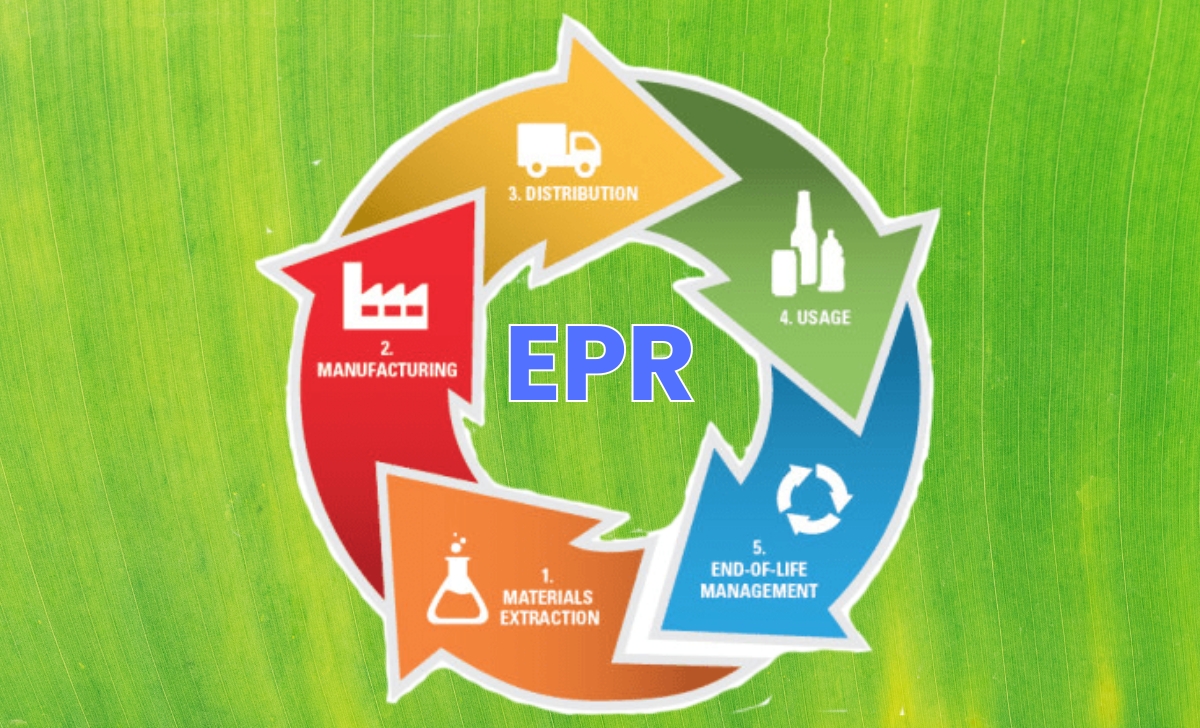
Extended Producer Responsibility (EPR) is a regulatory approach that transfers the responsibility of collection and recycling of the product to the producers, importers, and brand owners accountable for managing post-consumer waste.
It recognizes that manufacturers play a crucial role in a product’s lifecycle waste through their decisions on design, packaging, and materials, and thus should take responsibility for such waste.
EPR was first introduced in India in the early 2000s, following the introduction of the National Environmental Policy (NEP) in 2006. This policy was designed to foster sustainable development and protect the environment by advocating for EPR. By 2011, the Ministry of Environment and Forests (MoEF&CC) had enacted the E-waste (Management and Handling) Rules, obligating producers to take responsibility for their electronic waste.
In a further push towards environmental responsibility, the MoEF&CC rolled out the Plastic Waste Management Rules in 2016 followed by E-Waste Management Rules.
𝗥𝗲𝘀𝗽𝗼𝗻𝘀𝗶𝗯𝗶𝗹𝗶𝘁𝗶𝗲𝘀 𝗼𝗳 𝗣𝗿𝗼𝗱𝘂𝗰𝗲𝗿𝘀, 𝗜𝗺𝗽𝗼𝗿𝘁𝗲𝗿𝘀, 𝗮𝗻𝗱 𝗕𝗿𝗮𝗻𝗱 𝗢𝘄𝗻𝗲𝗿𝘀:
𝗣𝗿𝗼𝗱𝘂𝗰𝗲𝗿𝘀: Within the framework of EPR, producers – those who manufacture or brand the products bear the major responsibility. They are required to choose environmentally friendly materials, minimize waste generation, and design products for recyclability. Producers are also tasked with establishing efficient waste collection mechanisms, partnering with recycling centers, and ensuring responsible disposal of their products at the end of their useful lives.
𝗜𝗺𝗽𝗼𝗿𝘁𝗲𝗿𝘀: Importers must comply with EPR regulations for the products they introduce into the country. This includes registering with the necessary regulatory authorities, providing detailed information about the imported products, and adhering to waste management protocols. Importers are subject to the same recycling and waste management reporting requirements as producers.
𝗕𝗿𝗮𝗻𝗱 𝗢𝘄𝗻𝗲𝗿𝘀: Brand owners, entities who place their brands on products without manufacturing them, are also obligated under EPR. They are required to fulfill their shared EPR obligations by collaborating with manufacturers and importers. It is the responsibility of brand owners to ensure that the marketed products are recyclable and managed sustainably at the end of their lifecycle.
The outlook for EPR in India is optimistic. The government has enacted numerous policies and regulations to encourage EPR, and the ICT Industry has embraced the EPR practices. The growing understanding of EPR and its advantages is expected to further its implementation in the coming years.
Article contributed by Fariha Salman, Executive Officer (Policy), MAIT
Comments (0)
Leave Your Comment: